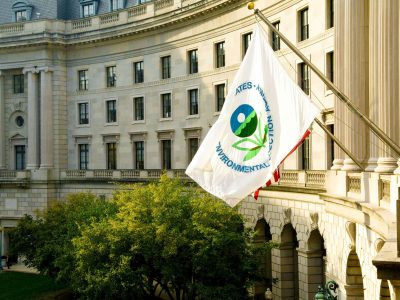Revolt of the Captive Scientists
Legal Planet: Environmental Law and Policy 2019-12-31

Trump has appointed most of the members of EPA’s Scientific Advisory Board (SAB), many of them selected from industry. That effort to stack SAB in favor of deregulation apparently wasn’t a complete success. In draft reports issued this week, the SAB scathingly criticized those efforts and even went so far as to give a nod to California’s alternative approach.
Clean Water Act. The Trump Administration has proposed drastically reducing EPA’s jurisdiction over wetlands and small streams. According to SAB, this proposal ignores established science:
“The departure of the proposed Rule from EPA recognized science threatens to weaken protection of the nation’s waters by disregarding the established connectivity of ground waters and by failing to protect ephemeral streams and wetlands which connect to navigable waters below the surface. These changes are proposed without a fully supportable scientific basis, while potentially introducing substantial new risks to human and environmental health.”
In particular, the SAB faulted the exclusion of groundwater, Western arroyos, and wetlands near navigable waters.
Fuel efficiency. The Administration has also proposed freezing fuel efficiency standards rather than allowing scheduled tougher standards to go into effect. Those tougher standards were originally put in place by the Obama Administration. Like economic experts outside of the government, the SAB faulted the models that the Trump EPA used to justify this rollback. According to SAB, two of the new modules that EPA added to its model case “lead to implausible results regarding the overall size of the vehicle fleet, predicting that an increase in vehicle prices due to regulation will cause the fleet to grow substantially when it would usually be expected to shrink.” In fact, SAB said, the originally scheduled efficiency improvements might well be better than the Trump revision.
Notably, the SAB also said that intermediate options might also be an improvement over the proposed rollback. In doing so, it gave a boost to California’s efforts to proceed with its own tougher standards:
“There are many intermediate options between the two, such as the recent voluntary agreement between the State of California and four global automakers. That agreement has the practical effect of reducing some of the compliance burdens on manufacturers while retaining some of the advantages of the [Obama] standards.”
Regulatory Science. In an effort to chill future regulatory efforts, the Administration has proposed excluding scientific evidence unless all of the underlying data was released, which is often impossible for medical information. SAB was not impressed. Its response to the proposal points out numerous ambiguities and unresolved issues in the proposal, as well as the risk that important studies may be subject to confidentiality agreements that would make compliance impossible. It also suggests an alternative:
“If the EPA wants to see reanalyses of datasets that are critically important for regulation, the agency should consider funding a competition to conduct such reanalysis. A model for this was established by the Health Effects Institute (HEI) in its 2000 reanalyses of datasets from the Six Cities Study and the American Cancer Society. However, HEI has not repeated that exercise, and to SAB’s knowledge has no plans to do so.”
Of course, SAB’s suggested approach carries the risk (from the Administration’s perspective) that those studies might be valid, which would justify stronger regulation to protect the public, a prospect that the Trump Administration finds anathema.
The Trump Administration purged independent academic experts from SAB and replaced them with industry employees and consultants. Two-thirds of the current board members were appointed by Trump. But it turns out that stacking the board wasn’t enough, because these handpicked industry representatives turned out to have some scientific integrity.
The post Revolt of the Captive Scientists appeared first on Legal Planet.